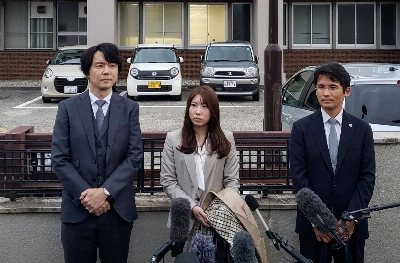The Supreme Court last week rejected five lawsuits in which former wartime slave laborers and sex slaves from China sought compensation. It ruled that the 1972 Japan-China Joint Communique, which restored bilateral diplomatic relations, should be interpreted as saying that all rights to seek compensation for damage inflicted during the course of war making were abandoned, including the rights of individuals. The rulings, which set a precedent, will have a far-reaching effect of closing off an avenue for most foreigners to seek war-related compensation through Japanese courts, except for Taiwanese and North Koreans, whose governments have no treaties with Japan to end the war.
The 1972 joint communique only says that the Chinese government will not seek war-related compensation for the sake of mutual friendship. But the top court said that the communique should be interpreted within the framework of the San Francisco Peace Treaty, which says that all signatory nations abandon all rights to claim compensation, including the rights of individuals. The ruling will serve as a legal device that will quash similar lawsuits.
But the Supreme Court acknowledged facts presented by plaintiffs. For example, it acknowledged that a Japanese firm forcibly brought five Chinese laborers to Japan around 1944 and made them work under harsh conditions. It said that victims had suffered significant mental and physical pain. The top court also acknowledged that the Japanese military kidnapped, confined and repeatedly raped two girls in Shanxi province, aged 13 and 15. But it must be noted that the precedent set by the top court will enable other courts to dismiss war-related compensation lawsuits without determining facts, which is tantamount to blotting out history.


















With your current subscription plan you can comment on stories. However, before writing your first comment, please create a display name in the Profile section of your subscriber account page.